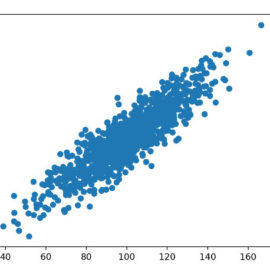
What are the best Misbehaving quotes on behavioral economics? Why do consumers behave the way they do in economic situations?
In Misbehaving, Richard H. Thaler makes the bold argument that traditional economics is no longer applicable. That’s because people behave irrationally when making financial decisions.
To get a better understanding of Thaler’s arguments, check out his best Misbehaving quotes.
Richard H. Thaler’s Top Misbehaving Quotes
The theories of traditional economics—which assume that consumers act rationally and that financial markets reflect securities’ true values—rest on a faulty foundation, according to behavioral economist Richard H. Thaler. In his 2016 book, Misbehaving, Thaler instead argues that consumers frequently behave irrationally, making sub-optimal economic decisions, and that markets may price securities incorrectly. To show as much, he traces the historical development of behavioral economics, which explores how consumers actually behave in economic situations, not just how they should behave.
Let’s look at three Misbehaving quotes that represent Thaler’s main ideas from his book.
“The core premise of economic theory is that people choose by optimizing.”
Thaler explains that the foundational principle of traditional economics is the premise of constrained optimization, which contends that consumers with a limited budget always make decisions that optimize it. In other words, they act rationally, and their decisions always maximize economic value based on their available budget.
To see how this works in practice, imagine that you were purchasing groceries on a $100 budget. According to the premise of constrained optimization, every item that you purchase will guarantee that you’re getting the most bang for your buck. For example, if you were choosing between a $10 name-brand item and an $8 value-brand item with identical nutritional values and flavor profiles, you would always choose the $8 item to maximize your budget.
Thaler explains that the premise of constrained optimization implies that noneconomic factors are irrelevant to consumers’ decision-making process. For example, the fact that one brand of bread has more aesthetic branding than another won’t influence your decision, since the factor is economically irrelevant.
“They have convinced their customers that the entire shopping experience is an orgy of bargain hunting, and go out of their way to reinforce that image.”
Consumers often create separate budgets for separate categories of spending. For example, a family might have one budget for monthly groceries, one for its mortgage, one for entertainment, and one for insurance payments.
Although budgeting doesn’t necessarily violate constrained optimization, Thaler points out that it often does in practice when we treat budgeting categories as independent of one another. For instance, if you had additional money in your entertainment budget at the end of the month, you might splurge on an expensive experience and justify it as being within your budget. In so doing, you would fail to evaluate whether purchasing that expensive experience maximizes your overall budget, since the money you spent might be better spent elsewhere.
“People are more likely to keep what they start with than to trade it, even when the initial allocations were done at random.”
According to Thaler, one argument against the efficient market hypothesis is the violation of the law of one price—the thesis from traditional economics that a security should never sell at two different prices at the same time. Thaler explains that the law of one price follows directly from the EMH’s assumption that securities are always accurately priced. Under this assumption, it’s logically impossible for the same security to have two different prices, since that means at least one of the prices is different from the security’s intrinsic value.
However, Thaler argues that closed-end funds violate the law of one price and therefore are inconsistent with the EMH. Closed-end funds, he explains, are investing funds—that is, pools of money from investors that money managers invest on their behalf—that raise money via an initial public offering (IPO) in which investors can purchase shares of the closed-end fund. The fund managers then use the money raised through this IPO to purchase stocks. For example, if the IPO raised $10 million, then the fund managers would invest this $10 million in the stock market as they see fit. Crucially, investors can then also buy and sell shares of the closed-end fund itself, although they cannot invest money directly into the fund after the IPO.
Thaler notes that, if the law of one price were true, the market price of closed-end funds should be equivalent to their net asset value—that is, the value of the assets that the fund owns. For example, imagine that after the IPO raised $10 million, the fund’s managers invested $5 million in Netflix which rose 20% (yielding $6 million in value) and $5 million in Google which rose 10% (yielding $5.5 million in value). Then, the IPO’s net asset value would be $11.5 million, and because investing in the closed-end fund is functionally equivalent to investing in its underlying assets, the law of one price states that the market price of the closed-end fund (its share price multiplied by its total number of shares) should also equal $11.5 million.
In practice, however, closed-end funds’ market prices are rarely equivalent to their net asset value. On the contrary, Thaler points out that closed-end funds typically trade at a 10-20% discount of their net asset value (though, occasionally, they also trade above net asset value), meaning that investors are essentially purchasing shares of the closed-end funds’ underlying assets for less (or occasionally more) than their market price. Either way, closed-end funds represent a violation of the law of one price.

———End of Preview———
Like what you just read? Read the rest of the world's best book summary and analysis of Richard H. Thaler's "Misbehaving" at Shortform.
Here's what you'll find in our full Misbehaving summary:
- Why the theory of traditional economics rests on a faulty foundation
- How consumers actually behave in economic situations
- Real-world cases of behavioral economics helping consumers






